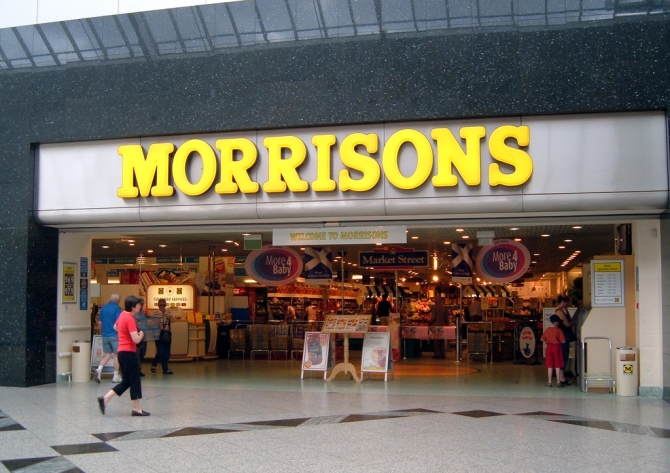Embattled Morrisons will lay bare the impact of a tough year this week when its annual report is expected to reveal a plunge in profits. The supermarket group has already confirmed it plans to offload almost £500m of its property assets including shopping centres, warehouses and undeveloped land.

The Bradford-based chain warned of a profits fall after a hefty 5.6 per cent drop in Christmas sales. It admitted its festive sales were “disappointing” and blamed “tough market conditions”. Now its chief executive, Dalton Philips, will tell shareholders tomorrow of his plan to dispose of £500m of his company’s £9bn property portfolio.
Unlike its rivals Tesco and Sainsbury’s, the Morrisons group still owns 90 per cent of its supermarkets. Although the property disposals will stop short of the widespread sale-and-leaseback some investors have called for, it is intended to show that Philips and the board are listening to shareholders.
One of its biggest, Elliott Advisors, has continually advocated a spin-off of Morrisons real estate into a separate company by claiming it would almost certainly push up share prices. The US hedge fund said recently that the retailer needed to make a “drastic – rather than piecemeal – reduction” to its property ownership to bring it into line with other members of the “Big Four” grocery chains.
Not all investors will back the move. Several institutional shareholders have warned of the “incredibly dangerous” results that a sell-off plan could trigger, given the potential for increases in rents in the medium-to-long term. They are urging Morrisons to “capitalise” on its property holding by leasing rather than selling.
Even the most generous forecasts estimate a pre-tax profit for the year to the end of January of £731.21m, down from £879m the previous year. Underlying profits are expected to come in at around £783m on sales of £17.8bn.
Long seen as the most price-sensitive of the supermarket chains, and with a price war already on the horizon, the Morrisons’ chief executive is expected to unveil a competitive response to what he sees as a major structural change in the retail market caused by the rise of companies such as Aldi and Lidl.
But there are some positives for the group with the recent launch of a long-awaited online grocery service. Morrisons has teamed up with Ocado, with which it has signed a 25-year deal to handle technology and operations, and on January 10 started grocery deliveries through a fleet of Morrisons-liveried vehicles. And despite its predicted property disposal, Morrisons is rapidly expanding its convenience store network.
Alongside its other woes, reports have surfaced recently that Morrisons’ founding family has sounded out private equity funds to assess their interest in taking the supermarket private. There are claims that the family — which still holds just under 10 per cent of the group — has contacted CVC Capital Partners and Carlyle Group, but that a buyout partner was proving elusive.
Previous Post
Shop Vacancy Rate falls further in February